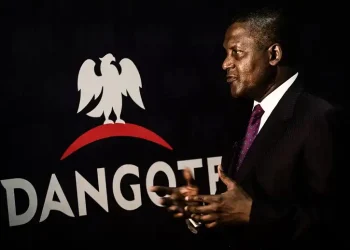The Minister of Petroleum Resources (Oil), Heineken Lokpobiri, has said that Nigeria went over a decade without attracting any new investments in the oil sector until Bola Tinubu became president. He recently revealed that the lack of investment actually crippled growth and weakened confidence in the industry for many years.
Speaking via a press statement signed by his Special Adviser on Media and Communication, Nneamaka Okafor, following his keynote address at the United States–Nigeria Council’s session on oil sector collaboration, held on the sidelines of the ongoing United Nations General Assembly in New York, he hailed recent reforms for restoring investor interest.
According to him, Nigeria’s renewed energy agenda is a result of a clear and deliberate policy direction under Tinubu’s government.
“At the heart of Nigeria’s renewed energy agenda is a clear and deliberate policy direction: to open our oil sector to deeper, smarter, and more strategic partnerships. The time to invest is not just now, it is ripe.
Recall that for over ten years, prior to the coming of President Bola Ahmed Tinubu, Nigeria did not have any new investment in the oil sector, but with the reforms we have carried out, which have created an atmosphere that is globally competitive and attractive, we now have new investments running into billions of dollars.
All inactive blocks during the period of no investments are in the basket now and up for grabs. We have a longstanding relationship with the US and US companies; beyond these relationships, there are new opportunities for new investors, both in the upstream sector and other sectors,” he said.
Heineken further noted that Nigeria’s oil sector has witnessed significant progress over the past two years, including increased production output and a more attractive investment climate.
He concluded by urging global investors to take advantage of emerging opportunities in the country’s rapidly transforming oil industry, citing ongoing reforms, improved production capacity, and the nation’s growing regional influence as major drivers of growth.
“Thanks to bold reforms and globally competitive fiscals, Nigeria has significantly ramped up production and repositioned itself as a dependable energy hub across West Africa and the continent.
We are fully aligned with the Paris Agreement, and remain committed to cleaner, more sustainable exploration.
Our doors are open, our laws are clear, and our environment is conducive; now is the time for U.S. and global investors to become part of Nigeria’s energy success story,” he added.

Folami David is a dynamic journalist who views the world through an analytical lens, translating complex narratives across multiple industries into compelling stories. With an insatiable appetite for information and a keen eye for emerging trends, Folami specializes in uncovering the interconnections between technology, business, culture, and society.


















